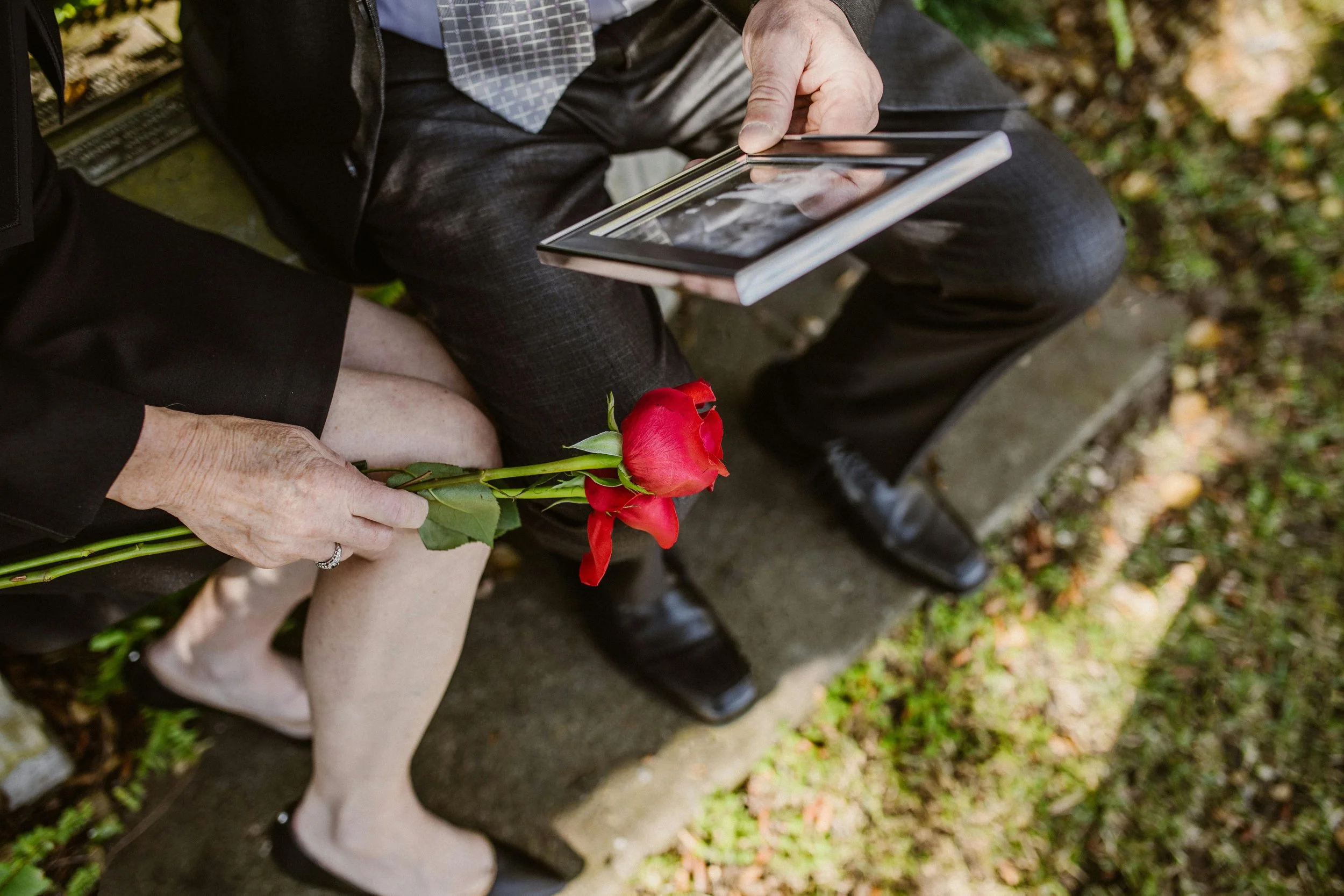How to Identify and Manage Emotional Triggers During Grief
Grief is one of the most personal and complex experiences a person can go through. While everyone’s healing process looks different, many grieving individuals find themselves suddenly overwhelmed by emotions that seem to come out of nowhere. These moments are often tied to grief triggers reminders of a loved one or the loss itself. You might wonder: “What does it mean to recognize your grief triggers?” Recognizing them means understanding the situations, people, places, or even smells and sounds that stir up painful emotions, so you can respond with awareness rather than being caught off guard.
What Are Grief Triggers?
Grief triggers are emotional responses sparked by reminders of the person you lost or the life you shared together. They can be obvious, such as your loved one’s birthday, or subtle, like hearing their favorite song play while you’re at the grocery store. A simple scent like the perfume they wore, or the smell of their cooking, can transport you back in time and stir up powerful emotions.
Triggers often catch people off guard because grief is not a straight line. Even if you feel like you’ve been coping well, a single reminder can suddenly bring sadness, anger, or longing rushing back. This doesn’t mean you are “regressing” in your healing. Rather, it shows how deeply your loved one remains woven into your daily life.
Why It’s Important to Recognize Grief Triggers
Awareness of grief triggers is one of the most powerful tools in the healing process. Without recognizing them, you may feel like your emotions are unpredictable and overwhelming. By naming and understanding triggers, you take back some control.
Preparation: Knowing when and where triggers are likely to happen allows you to prepare emotionally. For example, if you know holidays are difficult, you can plan supportive activities or create new traditions.
Coping strategies: Awareness makes it easier to develop strategies like calling a friend, journaling, or practicing deep breathing when triggers arise.
Emotional validation: Recognizing triggers also helps you see that your feelings are valid and part of the natural grieving process. Instead of blaming yourself for “not moving on,” you can see the trigger as a natural response to a reminder of your loved one.
Reducing fear: Many people fear their emotions when they come suddenly. When you understand triggers, the fear of being “ambushed” by grief lessens.
Common Examples of Grief Triggers
While grief triggers are highly individual, certain experiences tend to affect many people:
Anniversaries and birthdays: The dates of your loved one’s birth, passing, or even your wedding anniversary can spark deep feelings of longing and sadness.
Holidays and family gatherings: Missing someone during special traditions often makes their absence feel especially painful.
Songs, scents, or foods: Sensory triggers are powerful. A favorite dish, the smell of cologne, or a song that once played on road trips together can bring memories flooding back.
Places tied to memories: Driving past your loved one’s workplace, favorite café, or even your shared home can bring up emotions.
Objects and keepsakes: Looking at old photos, clothing, or personal belongings can stir up waves of grief.
Some triggers may even surprise you. For example, a TV commercial or casual conversation may touch on a theme connected to your loss, and suddenly you feel your chest tighten. Recognizing these unexpected moments as triggers can help you respond with compassion rather than confusion.
How to Recognize Your Grief Triggers
Pay Attention to Emotional Patterns
Notice when your emotions feel heavier than usual. Does your sadness spike at certain times, like evenings or weekends? Do certain dates seem harder to get through? Tracking these patterns in a journal can help you predict when grief might resurface.
Tune Into Physical Reactions
Your body often signals triggers before your mind catches on. Tightness in the chest, a lump in your throat, or sudden fatigue can indicate that something around you is stirring grief. Learning to link these physical symptoms with emotional triggers helps you respond sooner.
Reflect on Routines and Habits
Daily routines often hold hidden grief triggers. Maybe it’s pouring two cups of coffee instead of one, watching a show you used to enjoy together, or walking by the chair they always sat in. Reflecting on your habits can help you notice which ones spark unexpected sadness.
Coping With Grief Triggers
Recognizing triggers is only half the journey. The next step is learning to cope with them in healthy ways.
Create a Plan for Difficult Days
If you know a holiday or anniversary is approaching, plan ahead. Some people choose to surround themselves with friends or family for support, while others prefer quiet reflection. You might create a new tradition, such as lighting a candle or visiting a special place, to honor your loved one.
Practice Grounding Techniques
Grounding exercises can help you manage the physical and emotional intensity of triggers. Simple methods like deep breathing, focusing on your senses (naming things you can see, hear, and feel), or repeating a calming phrase can anchor you in the present moment.
Honor the Memory Instead of Avoiding It
Sometimes leaning into the trigger can bring healing. Writing a letter to your loved one, cooking their favorite meal, or listening to their favorite music can turn a painful reminder into an act of connection. Avoidance may seem easier in the short term, but honoring the memory allows you to integrate your grief in meaningful ways.
Build a Support Network
Sharing your experiences with trusted friends or family can ease the weight of triggers. Simply saying, “Today is hard because it’s Mom’s birthday,” can invite empathy and support. If you find it hard to lean on friends, grief support groups—both in person and online—offer spaces where others understand exactly what you’re going through.
Seek Professional Help When Needed
If triggers begin interfering with daily life or causing overwhelming distress, a grief counsellor or therapist can help. Professional support provides tools for managing triggers and reframing the way you experience them, turning overwhelming pain into more manageable moments of remembrance.
Healing Doesn’t Mean Forgetting
It’s important to understand that coping with grief triggers doesn’t mean you’ll eliminate them. You may always feel emotional when you hear your loved one’s favorite song or pass a place filled with memories. Healing is not about forgetting; it’s about finding ways to carry the memory with you while continuing to live fully. Over time, the intensity of the triggers often softens, and moments that once caused only pain can begin to bring comfort, gratitude, and even joy for the time you shared.
Bottom Line: What Does It Mean to Recognize Your Grief Triggers?
So, what does it mean to recognize your grief triggers? It means identifying the reminders, big or small, that stir up your emotions, understanding why they affect you, and learning to cope with them in healthy ways. Triggers are a natural part of grief, but they don’t have to control you. With awareness, self-compassion, and support, you can navigate them with more resilience and integrate your loved one’s memory into your ongoing life.
If you’re struggling with grief triggers and need help managing overwhelming emotions, Wellman Psychology offers Grief Counselling Chicago. Our compassionate therapists will guide you through your healing journey and help you find practical, supportive strategies to cope. Contact us today to book an appointment and take the next step toward balance and emotional healing.
Feel free to check out our social media links below:
Find out more articles that can help you below:






